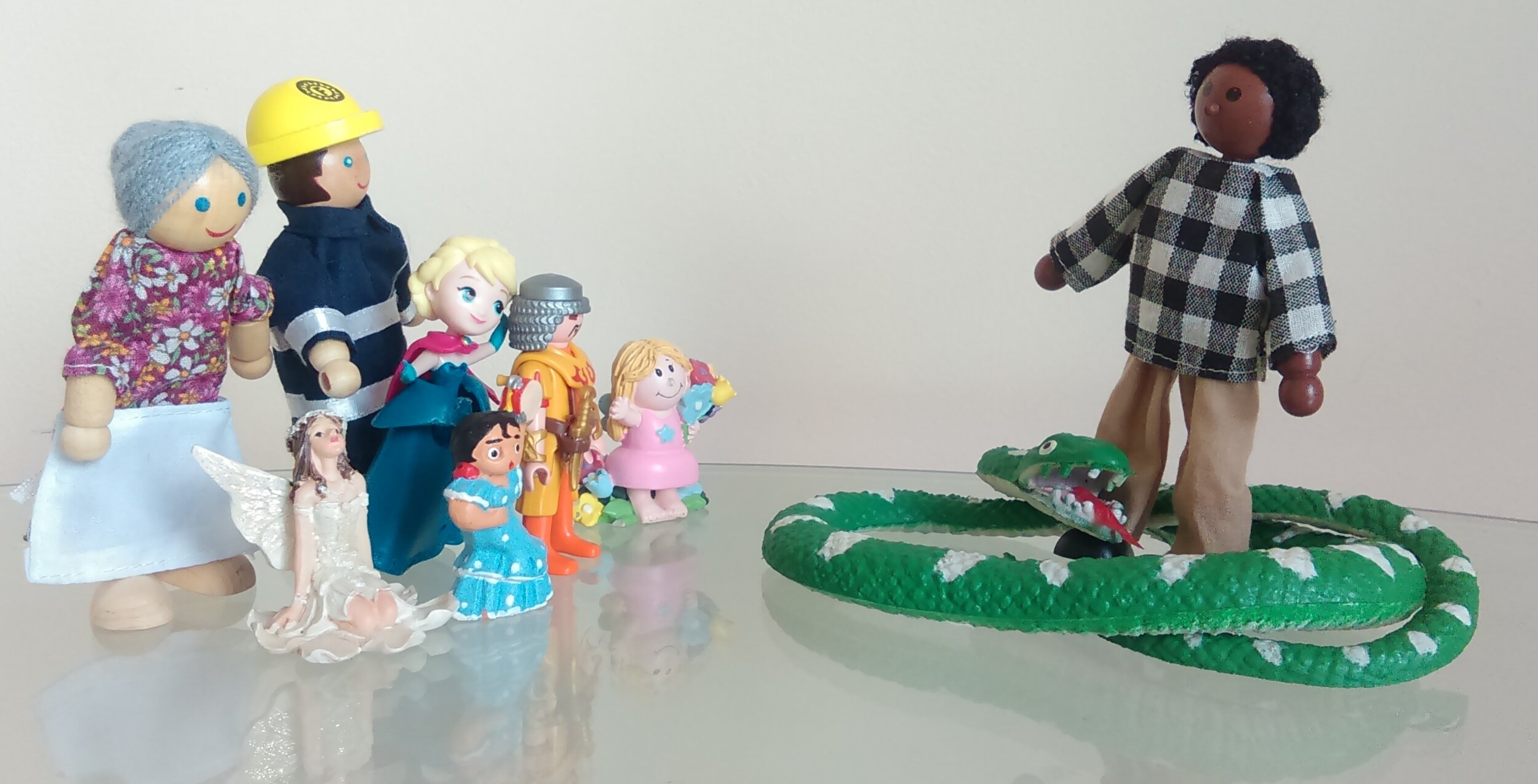
Play Therapy
Play therapy is frequently used with children over three years but can also be very helpful for teenagers and adults. In play therapy, toys and symbols, puppets, sand, paint, games, sound and movement can be used by an individual to explore their experiences, express their emotions or feelings and solve problems in a safe environment. Therapeutic objects are carefully chosen to encourage inspiration, imagination, mastery of skills, nurturing, and real-life processing. Individuals play as they choose, within safety limits, and this instinctual play becomes the means by which the therapist can help the individual explore, heal and develop new skills and self-awareness. The therapist uses different techniques depending on the individual's age, stage and needs to enable therapeutic processing, but the individual will always determine their own journey through play therapy.
If the individual is a child or teenager, it is valuable to meet with the parents/ guardians and, at times, significant others in their lives, e.g. teachers, as part of the process. Sometimes, a child or teenager might not be willing or ready to engage with therapy or may disengage when it becomes challenging. On these occasions, a series of parent/ guardian or family sessions can facilitate the change required or help prepare and support the young person through the therapy journey. The therapist will constantly liaise with parents/ carers to try and identify the best strategy at the time.
It is worth recognising that ‘Play Therapy’ is not a protected title, and as such, a range of professionals can offer ‘play therapy’. The play therapy I offer is a post-graduate Master’s qualification regulated through the British Association of Play Therapy (BAPT) and is targeted towards using play to support a child’s mental health and emotional well-being. Other types of ‘play therapists’ provide important but different roles. For example, Hospital-based Play Therapists typically focus on distracting a child during a procedure or educating them about a procedure or condition, and some schools or services may provide an assistant trained in ‘play therapy’ to help children play, but they may not be trained to support a child’s processing through play. It is, therefore, essential to understand the differences, recognise the needs of the individual and identify the right type of Play Therapy for you.
Play Therapy Information Leaflets
“We are never more fully alive, more completely ourselves, or more deeply engrossed in anything than when we are playing.”
~ Charles Schaefer ~

